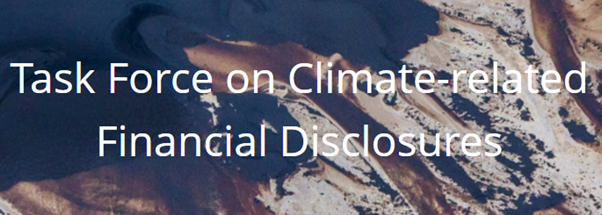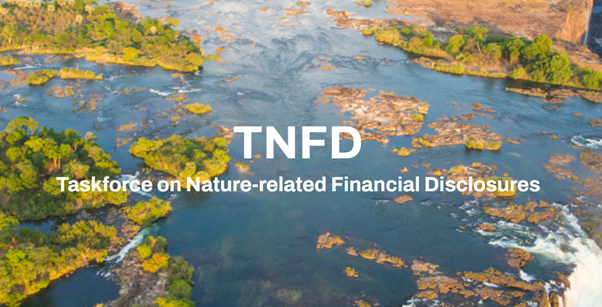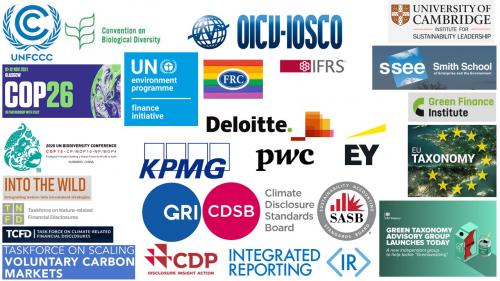There are likely to be increases in demands for environmental monitoring data and its interpretation, due to changes in corporate sustainability reporting and financial disclosure activities related to climate and biodiversity crises (and broader sustainability crisis) that are essential for supporting organisations and countries in their post-COVID green recovery strategies. In part, this is being driven by the activities of three task forces: the Task Force on Climate-related Financial Disclosures (TCFD), Taskforce on Nature-Related Financial Disclosures (TNFD), and Taskforce on Scaling Voluntary Carbon Markets (TSVCM). Environmental monitoring is one activity in a chain of activities - spanning monitoring/measuring, reporting, and verification/assurance (often referred to as MRV). Environmental monitoring is the foundation of how we understand our impacts on rural, urban, and marine environments.
Corporate sustainability reporting is a means by which stakeholders, including investors, can understand and evaluate companies’ performance; internally companies use this information to inform their decision-making. Corporate sustainability reporting is closely related to increasing interest in corporate climate and biodiversity financial disclosures. Since 2015, this has been driven by the activity of the Task Force on Climate-related Financial Disclosures (TCFD). Where, disclosure is a financial term that refers to the action of making all relevant information about a business available to the public in a timely manner.

Until recently, corporate sustainability reporting was primarily voluntary through a range of environmental, social, and governance (ESG) reporting standards and frameworks created by several international organisations, over the past 20 years. Over the past year, due to demands from investors and other stakeholders, as well as the range of existing sustainability reporting standards and frameworks, the financial reporting industry have been setting out their plans for expanding corporate (enterprise) reporting systems to cover sustainability concerns, with the proposed International Sustainability Standards Board (ISSB).
A Taskforce on Nature-Related Financial Disclosures (TNFD) was announced in July 2020 and launched in June 2021. This taskforce follows on from the success of the Task Force on Climate-related Financial Disclosures (TCFD) and increasing awareness of the biodiversity crisis, in part due to the 2019 Intergovernmental Science-Policy Platform on Biodiversity and Ecosystem Services (IPBES) global assessment report on biodiversity and ecosystem services. This task force is co-chaired by David Craig (CEO of Refinitiv, recently acquired by the London Stock Exchange Group) and Elizabeth Maruma Mrema (Executive Secretary of the Convention on Biological Diversity).

Recently, the Taskforce on Scaling Voluntary Carbon Markets (TSVCM) created a blueprint for voluntary carbon markets that aims to: connect carbon credit supply to demand, instil confidence and ensure credibility, and is scalable as companies and countries increase efforts to reduce their greenhouse gas emissions. Just as there has been a proliferation of sustainability reporting standards and related organisations overseeing them, there are a wide range of carbon credit/offsetting standards and their associated registries.

A range of corporate level activities are driving environmental monitoring and financial disclosures including the work of UNEP’s Finance Initiative (UNEP FI) and the World Business Council for Sustainable Development. UNEP FI is a partnership with over 350 members (that includes banks, insurers, and investors). They have co-created industry-based principles: Principles for Responsible Banking, Principles for Sustainable Insurance, and Principles for Responsible Investment.
Several challenges related to greater levels of sustainability reporting and financial disclosure include: the need for green taxonomies to reflect the sustainability risks and opportunities of an organisation’s activities, sustainability reporting and financial disclosure standards and frameworks need to be science based and used by all organisations, and there are gaps in the availability of data to support greater levels of consistent and comprehensive sustainability reporting and financial disclosure.
Kit Macleod, James Hutton Institute
